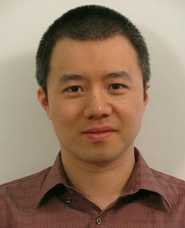Invited Talk: Le Song "Graph Neural Networks for Representation Learning and Symbolic Reasoning"

Back to list of invited speakers
- Day 2 (Nov.18), 15:00-15:50
- Nagoya Nohgakudo
Abstract
Graphs and hypergraphs are prevalent in many real world applications arising from online social platforms, recommendation systems, knowledge bases, computational biology and materials science. How to represent such graph data to capture their similarities or differences? How to integrate graph data with other sources of data in representation learning? How to combine deep learning with symbolic reasoning? How to better design algorithms over graphs?
I will present a graph neural network framework for addressing these challenges based on the idea of embedding message passing algorithms into function spaces, and learning these algorithms from data. In large scale applications involving molecule design, recommendation system and knowledge reasoning, this graph neural network framework consistently achieves the-state-of-the-art results, in terms of accuracy, model size and scalability. Graph neural networks also appear to be a very good tool to advance AI to the next stage, which can combine deep learning with symbolic reasoning.
Speaker
Le Song is an Associate Professor in the Department of Computational Science and Engineering, College of Computing, an Associate Director of the Center for Machine Learning, Georgia Institute of Technology, and also a Principal Engineer of Ant Financial, Alibaba. He received his Ph.D. from University of Sydney in 2008, and then conducted his post-doctoral research in the Department of Machine Learning, Carnegie Mellon University, between 2008 and 2011. Before he joined Georgia Institute of Technology in 2011, he was a research scientist at Google. His principal research direction is machine learning, especially nonlinear models, such as kernel methods and deep learning, and probabilistic graphical models for large scale and complex problems, arising from artificial intelligence, network analysis, computational biology and other interdisciplinary domains. He is the recipient of the NIPS'17 Materials Science Workshop Best Paper Award, the Recsys'16 Deep Learning Workshop Best Paper Award, AISTATS'16 Best Student Paper Award, IPDPS'15 Best Paper Award, NSF CAREER Award'14, NIPS'13 Outstanding Paper Award, and ICML'10 Best Paper Award. He has also served as the area chair or senior program committee for many leading machine learning and AI conferences such as ICML, NeurIPS, AISTATS, AAAI and IJCAI, and the action editor for JMLR and IEEE TPAMI.
- Website: https://www.cc.gatech.edu/~lsong/